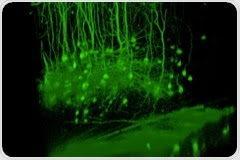| ||||||||||||||||||||||||||||||||||||||||||
| ||||||||||||||||||||||||||||||||||||||||||
| ||||||||||||||||||||||||||||||||||||||||||
| ||||||||||||||||||||||||||||||||||||||||||
| ||||||||||||||||||||||||||||||||||||||||||
| ||||||||||||||||||||||||||||||||||||||||||
martes, 29 de enero de 2019
Medical News | Medical Articles | Neurology / Neuroscience - Jan 29, 2019 Edition
Medical News | Medical Articles
Suscribirse a:
Enviar comentarios (Atom)





































No hay comentarios:
Publicar un comentario